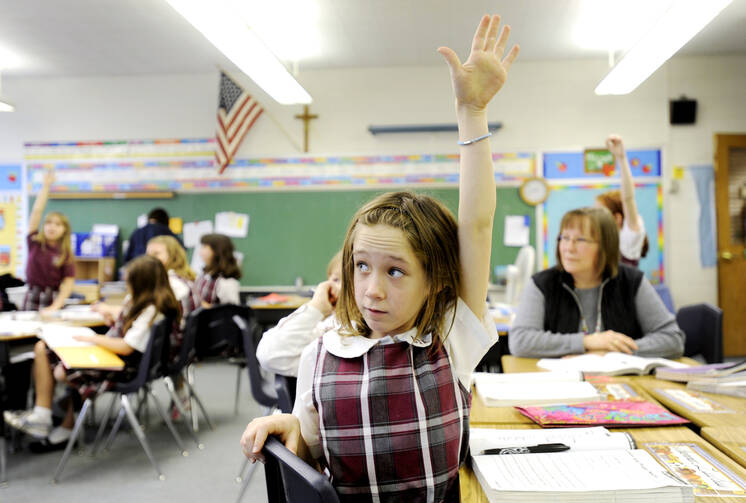With the new semester underway for many high schools, and soon to commence for most colleges, it’s an apt time to reflect once more on the role of educators, the nature of education, and the ancient calling of inspiring the pursuit of knowledge. Instinctually I think about what I have to do -- final preparations and tweaks to lesson plans and course goals. But almost always during these days, I think about what I owe to my students. I place the burden on myself. I have to be more creative. I have to be more captivating. I have to do a better job inviting them to pursue God and the great questions of existence.
This, of course, makes sense. The burden should be on the teacher, just as it's on a coach to lead his or her athletes. But a friend recently pointed me to a slightly different angle on this subject, an article by the great Jesuit Fr. James V. Schall, longtime professor at Georgetown University.
Titled “What A Student Owes His Teacher,” Fr. Schall writes, "Students have obligations to teachers. I know this sounds like strange doctrine, but let it stand . . . For students are in some sense spiritual beings and have, therefore, precisely 'obligations.'" The teacher-student relationship, says Fr. Schall, is "primarily a spiritual relationship -- both teacher and student participate in what is not properly theirs."
So what are the obligations of students? Fr. Schall identifies the following: "trust, docility, effort, thinking." (The article provides elaboration on each.) He also advances a point that I think educators need to hear more often: "Students do not, as St. Augustine said, go to schools to learn what professors happen to think. Rather, they go that they might, along with their professors, hear together the 'inner truth' of things, a grace that engages all alike in one enterprise that takes them beyond the confusions and confines of the classroom to the heart of reality, that to which our own intellects ought to 'conform,' as Aquinas said, when we possess the truth."
That is a beautiful thought, and one that I find I need to remember going into this week. We educate to enter into the heart of reality, not to showcase our own opinions, not to glorify ourselves, not to make students think -- as they easily can -- that we are the smartest in the room. The best teachers I've had are the ones that led me to the truth in the manner of a guide, like Virgil leading Dante. They were awed by the material. They proceeded as co-discoverers, as seekers mesmerized by what was on offer. Today, my best days in the classroom are those when I, too, am humbled by what I teach, when I feel like I'm learning as much as my students, when I believe I've glimpsed an inner truth that can come only from an infinitely wise creator.








